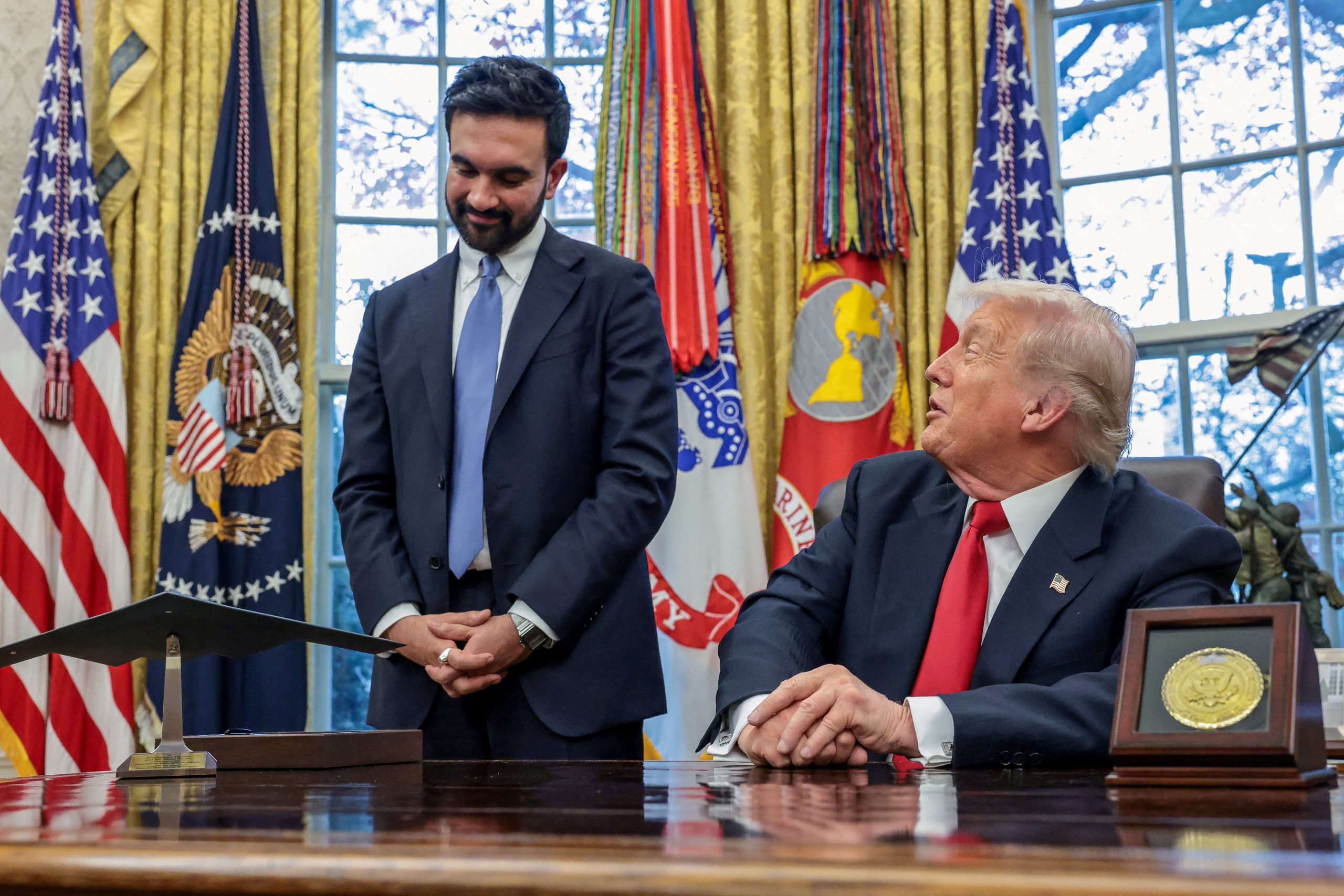The Democratic Party’s lack of awareness has become a serious problem.
What kind of place is the “Big Apple,” after all? In New York, barring some unusual twist, simply planting a blue flag is enough to secure victory. And in such a city, Joran Mamdani—running with the Democratic Party’s stamp—won the mayor’s seat.

On the surface, it seems obvious. But underneath lies the stale reality of today’s Democratic Party. Mamdani calls himself a “Democratic Socialist,” a label that sounds appealing but is essentially a repackaged form of socialism.
In his victory speech, he declared that “a new day is dawning for humanity.” He openly quoted Eugene Debs (1855–1926), a founding figure of American socialism. The one who ultimately knelt before him was Democratic heavyweight Andrew Cuomo. The symbolic weight of the Cuomo family in New York is considerable. For example, a bridge completed in 2017 bears the name “Mario Cuomo,” after Andrew Cuomo’s father, who served three terms as governor of New York.
Political commentators and media outlets immediately framed Mamdani’s victory as a defeat for Trump. But is that really the case? Trump was, for all practical purposes, little more than a bystander in this election. Even when the “Mamdani phenomenon” began gaining traction, he remarked, “If this continues, Mamdani is going to win.” Trump sensed the trend—something only the Democratic Party establishment failed to notice.
Back in February, the situation was entirely different. Cuomo stood at 33 percent support, while Mamdani languished at 1 percent—like David versus Goliath, except that even calling him David seemed too generous at the time. Yet Mamdani overturned this tilted playing field in the primary. For Cuomo, scion of a storied political family, being caught and surpassed by a newcomer he considered a rookie must have been a blow to his pride.
In the end, Cuomo dropped the Democratic banner altogether and ran as an independent, offering voters little more than, “A socialist like Mamdani is unacceptable.” It resembled the Democratic Party during the last presidential race, which wandered without a clear agenda except to obstruct Trump. From the beginning, New York’s mayoral election was never a Trump-versus-Mamdani matchup—it was a battle between the Democratic establishment and a party outsider.
It is clear that Mamdani was not the candidate the establishment hoped for. The New York Times, the day after the election, published a column titled “The odds are that Mamdani’s victory is actually less significant than you think,” downplaying his win. A few days later, it followed with another: “Mamdani Isn’t the Future of the Democrats.”
The Democratic establishment appears torn—reluctant to support Mamdani, yet uncomfortable abandoning him altogether.
New York Governor Kathy Hochul, a Democrat, has expressed skepticism about Mamdani’s proposals such as free city bus service and corporate tax hikes, warning that they could require enormous spending.
New York chose an even sharper left turn this time. Voters’ support for Mamdani carries a warning to a Democratic Party that refuses to change. The apple orchards of the “Big Apple” have always been blue. The shift toward Mamdani was driven less by anti-Trump sentiment and more by underlying frustration with a Democratic Party that remains stuck.
And yet the party remains the same. Its agenda has hardly changed since its defeat in the last presidential election. Rather than reading the public mood, it stays preoccupied with pointing fingers at Trump. The current administration still has three years left. At this rate, the party risks spending that time trailing behind Trump’s shadow.
The Democrats should have recognized the signs long ago. When Bernie Sanders—who also called himself a democratic socialist—sparked a political storm in the 2016 Democratic primaries, the warning was already there. Voters’ fatigue with an old, stagnant Democratic Party began showing then.
In a June interview with Politico, Sanders remarked, “If Kamala Harris had run her campaign the way Mamdani did, she would be president right now,” adding his own sharp critique.
There is little reason to link the rise of a Democratic mayor in deep-blue New York to Trump. The real concern lies with the Democratic establishment, which still seems unable to grasp the situation.
BY YEOL JANG [jang.yeol@koreadaily.com]
![Troublesome delivery robots damage gardens, snarl streets Delivery robots in urban areas including LA Koreatown and Hollywood have been involved in a string of incidents, blocking fire engine responses, crossing police lines at active scenes, and colliding with homes and motorcycles. [KTLA • Reddit capture]](https://www.koreadailyus.com/wp-content/uploads/2026/02/0226-delivery-robot-compile-100x70.jpg)
![Nonprofit leaders accused of diverting millions meant for the vulnerable Judy Baca, who faces allegations of embezzling $5 million, participates in work on “The Great Wall of Los Angeles” mural in 2023. [Sangjin Kim, The Korea Daily]](https://www.koreadailyus.com/wp-content/uploads/2026/02/0226-nonprofit-1-100x70.jpg)
![Family of army veteran killed in San Antonio shooting launches fundraiser A screenshot of the GoFundMe fundraising page created for Kyung Chang Lee. Donations are being collected to support the family of Lee, who was killed in the San Antonio, Texas, shooting. [GoFundMe capture]](https://www.koreadailyus.com/wp-content/uploads/2026/02/0225-KyungChangLee-100x70.jpg)
![Cartel leader’s killing sparks unrest, prompts Koreans to reconsider Mexico trips Downtown Guadalajara in Mexico’s state of Jalisco, which resembled a war zone on February 22 amid arson and other violence by drug cartel members, appears quiet on February 24. The area, usually crowded with tourists and residents, saw a sharp decline in foot traffic and public transportation use. [Pablo Lemus Navarro/X account]](https://www.koreadailyus.com/wp-content/uploads/2026/02/0225-Mexico-100x70.jpg)